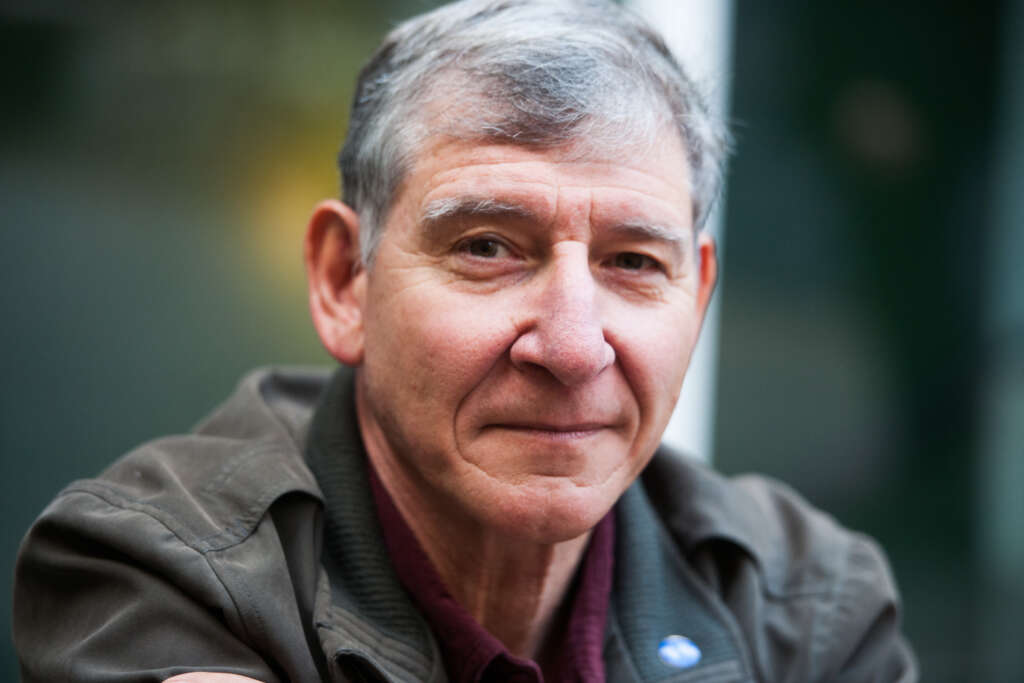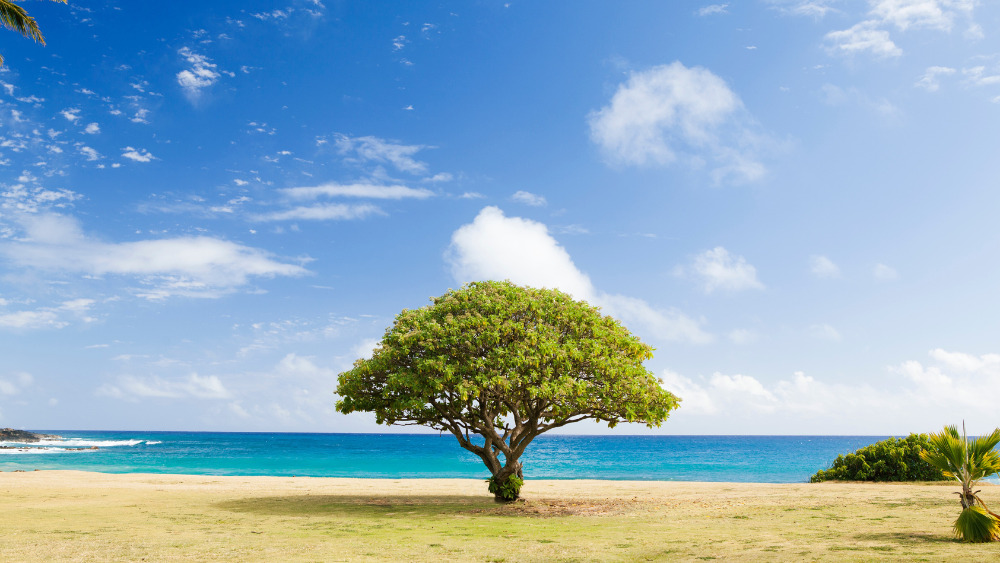Why should we care for creation?
‘The Forestmaker’ explores the biblical mandate we have all been given
I grew up in the beautiful Ovens Valley in northeast Victoria. The mountain streams, fertile farms and rolling hills covered with eucalyptus trees were my playground where I and other boys swam, fished, climbed and roamed. Life was good. At this time, there were three key things that shaped the person that I am.
The first was the destruction of the environment that I witnessed. Whole hills were bulldozed and sometimes left bare for years before planting with monoculture exotic trees. Even as a boy, seeing the erosion and loss of biodiversity just didn’t make sense to me. Pesticides, including DDT, were sprayed from crop-dusting airplanes. Spray drift poisoned the streams that I – and many others – drank from, swam in and fished from. Sometimes large trout floated past swimmers – belly up. From reading, I was also very aware of regular oil spills at sea, severe air pollution blanketing cities and clear felling of the Earth’s remaining forests globally.

Tony Rinaudo Wolfgang Schmidt
The destruction was bad enough, but I was deeply disturbed by the fact that this behaviour in the eyes of most adults was “normal”, the price of progress and unquestioned. I wondered how adults could think it was okay to effectively make life on Earth unlivable. There was certainly no guidance on caring for God’s creation coming from the church that I was aware of.
I prayed a child’s prayer simply asking God to use me somehow, somewhere to make a difference.
The second influence came through my curiosity about other countries and world events. I read what I could and watched the news and soon realised that other children who happened to be born elsewhere were going to bed hungry, through no fault of their own, while our farmers used good land to grow tobacco! To me, growing tobacco was both a waste and it was unjust. Society’s priorities – putting money and progress above the needs of people and the environment – seemed misplaced.
The third thing that shaped me was my mother’s strong faith and teachings from God’s word. I learned that there are more important things to life than money (Matthew 6:25-34), that we have a duty of care for those less fortunate than ourselves (Matthew 25:31-46), and that we are to be good stewards of God’s creation (Genesis 1:26-28; 2:15; Revelation 11:18).
I was very angry at the way things were and frustrated that I was powerless to change anything. I did the one thing I could do: I prayed a child’s prayer simply asking God to use me somehow, somewhere to make a difference.
I loved growing things and thought, if I am going to make a difference, this is the area I should train in. It was while studying Rural Science at the University of New England that I met my wife-to-be, Liz Fearon, who had her own sense of call to be a missionary in Africa. At that time, we learned about the evangelical missionary organisation, Serving in Mission (SIM). SIM has a holistic approach to ministry, serving God and people through ministering to both spiritual and physical needs.
Destruction of creation comes at a cost, and it is the poor and most vulnerable who suffer the most.
After studying Bible and Missions, we were accepted by SIM for service in Niger Republic, an extremely poor country suffering from desertification due to large-scale deforestation and climate change. Arriving in Niger in 1981, I was confronted by a landscape on the brink of ecological collapse, one that was barely able to support life. As the population grew, demand for farmland increased to a point where most of the forest in Niger’s agricultural zone was cleared. In time, soil fertility was depleted.
In the absence of trees, high temperatures and windspeeds took their toll. Frequency and severity of drought in an already harsh environment increased, multiplying suffering when crops and livestock perished. With the removal of vegetation and habitat, natural predators of crop pests such as egrets, lizards, spiders disappeared and so, even in good rainy seasons, farmers could still experience crop failure due to an explosion in crop-destroying pests. Destruction of creation comes at a cost, and it is the poor and most vulnerable who suffer the most.
Farming communities struggled to survive. Already poor, they regularly experienced hunger. It was common for men to leave home for at least part of the year to supplement their incomes. The scale of environmental destruction was so vast, the conditions so harsh, and the reluctance of the people to change so great, that I wondered whether it would be possible to have any significant impact at all.
Futile efforts at restoration
I reasoned that if deforestation was one of the root causes of these problems, then reforestation would go a long way towards solving them. I threw all my energy into the task – reading reforestation documents, consulting experts and experimenting with different methods and species. Nothing worked in an economically viable or sustainable way. Eighty per cent of the trees planted died, and the very people I came to help weren’t interested – they called me the ‘crazy white farmer’!
After two-and-a-half years of striving, I felt like a failure and that my efforts were a waste of time and money. I was so discouraged that it would have been very easy to give up and go home. However, I believed that God doesn’t make mistakes. I remembered my child’s prayer for God to use me somehow, somewhere to make a difference. I recalled all the confirmations I’d received along my spiritual journey and reasoned that there must be a solution.
I cannot rule out laying waste of the land is also a consequence of sin.
A God who renews the Earth
Niger appeared to reflect the exact opposite of the biblical picture of God’s provision and bounty (Psalm 65:9-13). I wondered if God had forgotten Niger. “His divine power has granted to us all things that pertain to life and godliness, through the knowledge of him who called us to his own glory and excellence.” (2 Peter 1:3, RSV). Where was the provision of everything we needed for life (our physical needs) and godliness? While there is a very clear link between human actions (removal of all trees from the landscape, continuous overgrazing and cultivation of every square inch of farmlands), I cannot rule out laying waste of the land is also a consequence of sin (Jeremiah 12-14).
The land seemed to be cursed and our efforts were regularly destroyed by a variable assortment of woes – drought, windstorms, insect attacks, and the people themselves. At times, I wondered if I needed to simply accept the status quo until Jesus returned. It seemed that due to the Fall, we were condemned to perpetual suffering, to a life of toil and misery, rising temperatures, increased drought and severe storms.
The consequences of sin are real. Life is hard and fraught with illness, toil and death. But I believe God is still a God of love and compassion, and even though the earth is under a curse, he still reaches out to us and wishes to bless us. Despite our sin, God is merciful. “He does not treat us as our sins deserve or repay us according to our iniquities” (Psalm 103:10). With the psalmist, I believe “I will see the goodness of the LORD in the land of the living.” (Psalm 27:13). That is, I would not have to wait until Jesus returns to see God’s blessing in the here and now. Through the events that unfolded over the following years – significant regreening and positive impact on the lives of millions – I have no shadow of doubt that God has not abandoned us, and he does want to bless us and restore the bounty of the earth.
We are long overdue to begin taking God’s commands to be stewards of his creation seriously.
We in the West feel somewhat immune to the impact of environmental destruction. We have not experienced serious food shortages since the end of World War II. An endless variety of food seems to come from constantly stocked supermarkets. We live in air-conditioned houses and drive to work in our sealed environment cars with music. Everything we need can be bought or provided.
I feel very uneasy about the world food situation when I see how precarious it is in an age of climate change, unbridled land degradation and political instability. It is a time for repentance for our sins. We are long overdue to begin taking God’s commands to be stewards of his creation seriously.
This article is the first of a three-part series by Tony Rinaudo, AM, author of the award-winning book, The Forest Underground. Tony’s life work has focused on forest and landscape restoration and helping farmers to become self-sufficient through natural farming approaches. He is World Vision’s Principal Climate Action Advisor, promoting reforestation initiatives globally. Watch out for part two, coming soon.


